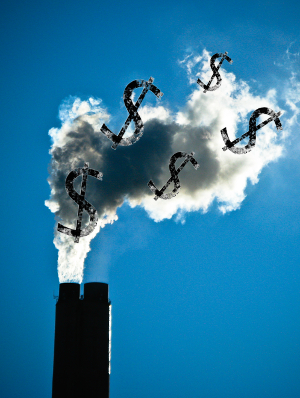EU tariffs could hurt local firms
 Australia risks falling on the unhelpful side of new European Union (EU) carbon tariffs.
Australia risks falling on the unhelpful side of new European Union (EU) carbon tariffs.
The EU's Carbon Border Adjustment Mechanism (CBAM) has been proposed to charge EU-based businesses that import carbon-intensive products.
This includes major Australian exports including cement, iron, steel, aluminium and fertiliser.
The measures are part of plans to cut EU emissions by 55 per cent by 2030, but they have not yet been passed.
“[The CBAM] is the first time we've ever seen any country, let alone the largest trading block, actually take a position to tax carbon exporters,” says Richie Merzian, director of climate and energy at progressive think tank The Australia Institute.
“This is a bold move by the EU,” he said.
There is a strong suggestion that the move will trigger a cascade of similar action from Australia's major trading partners.
“The EU has included iron and steel as part of the goods it will tax at the border and it will take into account the emissions from the production of those goods,” Mr Merzin says.
“We know Australian coking coal will go into the steel that will ultimately end up in the EU [and] will have to start factoring that price in.
“The EU stated that Canada and Japan are looking at potentially similar initiatives.
“This is of much greater concern because of the much greater quantity of trade with Japan.
“If Japan or South Korea go down this path, we're looking at a much larger impact to industries that export aluminium or iron or steel.”
Trade Minister Dan Tehan believes the measures may breach World Trade Organisation (WTO) rules.
“Australia is very concerned that the EU's carbon border adjustment mechanism is just a new form of protectionism that will undermine global free trade and impact Australian exporters and jobs,” he said.
The Minerals Council of Australia has unleashed on the looming changes too.
“Achieving net-zero emissions requires a concerted effort on new technologies, not trade protection,” mining lobby chief Tania Constable has told reporters.
Ms Constable said “Australia has a good story to tell”, calling on the EU to recognise “over 39 [emissions] abatement activities” already underway.
Mr Merzian said the CBAM would not be a threat to Australia industries if the nation had developed a meaningful climate change policy.
“Minister Angus Taylor says technology not taxes in terms of Australia's approach to climate action,” he said.
“Well, the taxes are coming and they're completely outside the control of the Australian Government.
“The world is changing, they're moving on to a less carbon-intensive path and it will impact Australian industry.”








 Print
Print